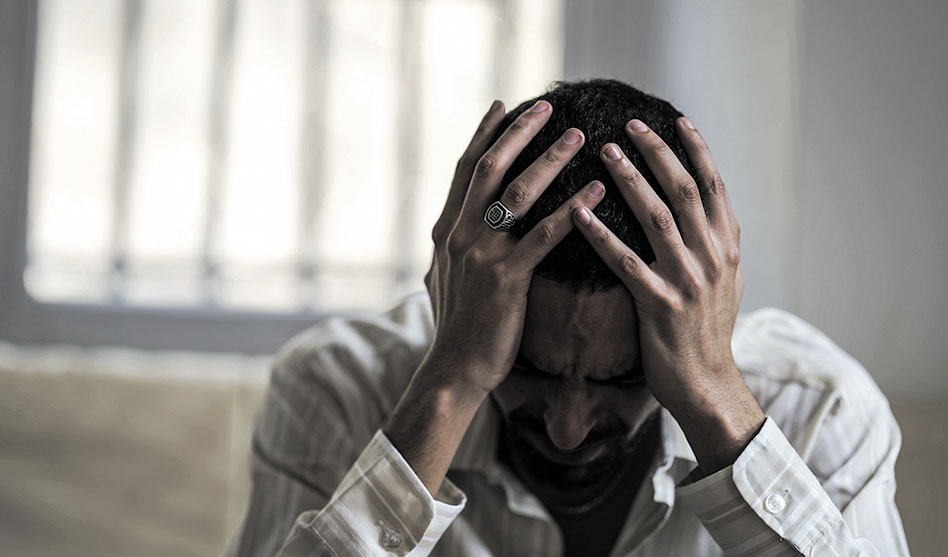As we struggle to move past the stress of the pandemic and everyday life as an LGBTQ person, Kula and other resources offer refuge
 There has never been a more urgent time to acknowledge the anxious and weary elephant that is standing right in the middle of in our room: the appalling lack of accessible and affordable mental health care that has become an existential threat. After all, who among us hasn’t had our mental health tested having just come out of a pandemic?
There has never been a more urgent time to acknowledge the anxious and weary elephant that is standing right in the middle of in our room: the appalling lack of accessible and affordable mental health care that has become an existential threat. After all, who among us hasn’t had our mental health tested having just come out of a pandemic?
For a time, we didn’t know who was going to make it and who would not. We lost more than a million irreplaceable friends, colleagues and family members. And some of us, lost ourselves.
I don’t think it’s fair to expect everyone to just continue as normal when the wounds haven’t healed yet.
Even before the pandemic, the LGBTQ community was facing a staggering mental health crisis, especially our youth. According to the Trevor Project, over the last few years, the percentage of LGBTQ youth who have seriously considered suicide has consistently risen and now stands at an all-time high of 45 percent.
As a gay man living with schizophrenia and someone who has survived four suicide attempts, I know what it’s like to be in a crisis and to have limited access to adequate mental health care. And I also know that I was pre-disposed to developing schizophrenia due to the many traumatic events of my childhood and adolescence.
We may not still be in a pandemic, but we are all very much aware that this is still a state of emergency.
Kula for Karma is a national nonprofit organization offering mindfulness-based mental health care for our post pandemic world. They are endeavoring to provide solutions with the understanding that the LGBTQ community faces unique challenges to our mental health. The nonprofit is offering mindful meditation, yoga and breathing exercises across the whole country, virtually and in person.
Before I had any understanding of what schizophrenia is or how to find the strength to keep living, I practiced meditation. Every morning and sometimes in the evening, I would sit cross-legged and focus on my breathing as a way to calm my mind. I would allow my mind and body to reach this state of calm and slowly resolve my anxiety and depression.
At the time, I was living in New York City — certainly not a very quiet or slow-paced environment. But I discovered that the practice of meditation could offer me a form of therapy that I couldn’t otherwise afford. It’s possible, however, that I could have found help if I had the courage to ask for help.
If we are to destigmatize and normalize the conversation that surrounds mental health, we have to do more. Not only does the government have to do more, we citizens also need to help bolster those organizations offering meaningful solutions. Kula for Karma is doing just that.
This period in our history is a call for reflection and action. We must remind those most impacted by the pandemic that they are not alone, and maybe we have to be willing to get in a few uncomfortable conversations until asking someone about their mental health becomes as commonplace as any other discussion.
And we must fund the few bastions of hope that are actively seeking to offer salve to our wounds. The pandemic drained the funds of many nonprofits that were working in overdrive to support us during our time of crisis. Even their reserves ran dry. Now that the pandemic is behind us, we can’t just leave our friends to pick up the pieces.
The last line of defense for our young people should not be the government or any organization; it must be us. If we succumb to peril, then so will our children.
There is no aspect of person’s health that doesn’t affect their longevity and happiness. Thus, adequate mental health care leads to holistic health.
Many of us were going past our limitats for three years, and some of us have been pushed past our limits for far longer. Be kind to yourself. Rebuild those limitats and boundaries, and give yourself a little space to breath.
It’s ok not to be ok. You have the right to use all the time you need to take care of yourself.
If you or someone you know is struggling to find a safe space to talk about these issues, to breathe or to just hit the pause button for a time, I encourage you not to go it alone. Because you are never alone.
Discover the beautiful community that is being built by Kula for Karma at KulaforKarma.org, because you matter.
Jonathon McClellan is the award-winning author of Messages of Hope and The Ant’s Palace. Follow him at Facebook.com/newseedsofhope

